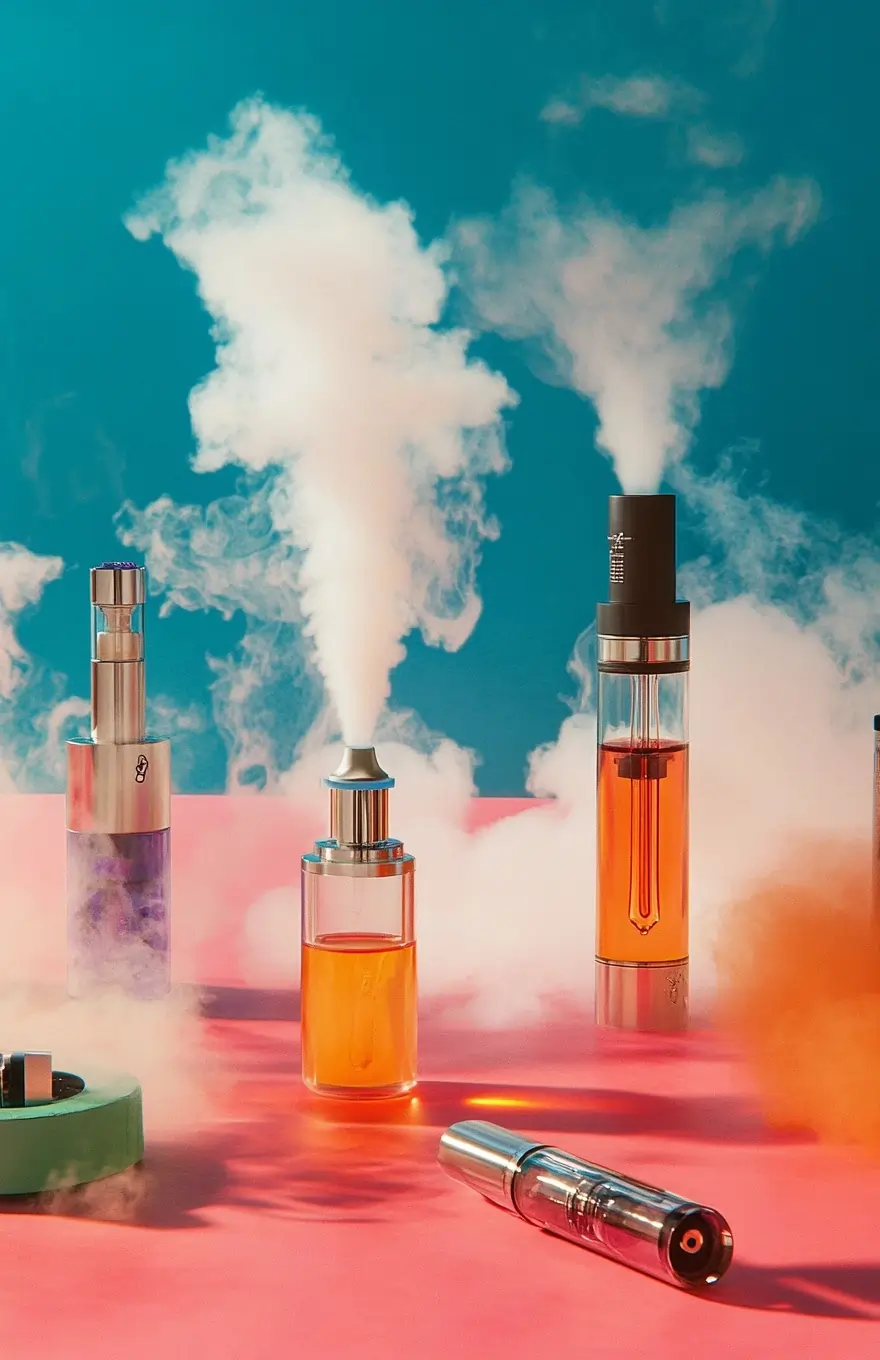

Is THCA legal in North Carolina? The short answer is yes, for now, but it’s complicated.
While North Carolina hasn’t banned THCA flower outright, the laws around hemp-derived cannabinoids are constantly evolving. And just because something is legal under federal law doesn’t always mean it’s safe under state laws.
In this guide, we’ll break down the full legal landscape of THCA in North Carolina, from how the Farm Bill applies to what products you can buy without legal risks.
Whether you’re a hemp fan, business owner, or just doing your homework, here’s what you need to know about THCA’s legal status in the Tar Heel State.
To understand why THCA’s legal status is so debated in North Carolina and across the U.S., you’ve got to know the science behind it.
THCA (tetrahydrocannabinolic acid) is found in raw cannabis plants. It’s the non-intoxicating precursor to THC — meaning it doesn’t cause a high on its own. But when you apply heat (like when you smoke, vape, or cook it), THCA converts into Delta 9 THC, the primary psychoactive compound in marijuana.
Here’s the key difference:
This chemical conversion is what causes so much legal ambiguity. A product with 20% THCA and 0.2% Delta 9 THC might seem legal under the Farm Bill, but once heated, it delivers the same experience as recreational marijuana.
Because of that, some states are now regulating THCA based on potential THC levels, even though it’s not intoxicating in its natural form. North Carolina hasn’t followed suit, but this issue is central to debates about hemp regulation and the evolving legal landscape surrounding THCA.

As of 2025, THCA is legal in North Carolina — but only if it’s derived from legal hemp and stays under the state’s THC content limit. That means THCA products must come from hemp plants with less than 0.3% Delta 9 THC by dry weight, matching federal standards under the 2018 Farm Bill.
So yes, the THCA flower is considered legal in NC for now, but the situation exists in a legal gray area. The state hasn’t passed specific North Carolina laws targeting THCA the way others have—like Georgia or Florida. However, that could change at any time depending on how lawmakers interpret state and federal laws moving forward.
Here’s the bottom line:
Because THCA converts to psychoactive THC when heated, it’s attracting more attention from lawmakers and law enforcement agencies. While still available in North Carolina, THCA sits in a fragile zone of legality that could shift with the next vote or regulatory update.
At the federal level, THCA is legal — but only if it’s derived from industrial hemp and the product contains no more than 0.3% Delta 9 THC by dry weight. This standard was set by the 2018 Farm Bill, which removed hemp and its cannabinoids from the list of Schedule I substances.
But here’s where it gets tricky: federal law only looks at Delta 9 THC, not THCA. That means a product could have high THCA and still pass under the federal threshold — as long as the Delta 9 THC remains below 0.3%.
This has created a legal gray area. Technically, high-THCA flower from hemp is federally legal. But once it’s heated (smoked, vaped, baked), THCA converts to Delta 9 THC, delivering the same psychoactive effects as marijuana.
That’s why many states — including Texas, Georgia, Florida, and potentially North Carolina — are moving toward new definitions that calculate total THC (Delta 9 + THCA). While federal law still allows THCA-heavy products, states are beginning to create their own legal frameworks for testing, labeling, and enforcement.
In short:
✅ Hemp-derived THCA is federally legal
❌ Marijuana-derived THCA is not
⚠️ States may add stricter rules, and North Carolina could follow that trend
If you’re manufacturing or selling THCA products in North Carolina, you need to understand more than just federal guidelines — you must stay ahead of the state’s evolving legal landscape.
Currently, North Carolina allows the sale of hemp-derived cannabinoids, including THCA, as long as the source is compliant industrial hemp and the product stays within the legal THC content limit (≤ 0.3% Delta 9 THC by dry weight). But that’s just the starting point.
Here are the key compliance expectations:
To prove a product is legal, businesses must test THCA flower and other hemp products through certified labs. These labs measure THC levels using standard methods approved under federal regulations — but expect increased scrutiny as state and federal laws continue to tighten.
North Carolina doesn’t have a fully developed labeling system for THCA flower yet, but smart manufacturers are already:
THCA must be sold as a consumable hemp product, not a marijuana product. To stay compliant:
Since North Carolina’s hemp industry is still largely self-regulated, compliance is proactive, but that could change quickly. As state laws develop, expect stronger enforcement around THCA legality, especially for high-potency or smokable hemp products.
In North Carolina, the legal status of THCA products hinges on their compliance with federal and state laws. Under the 2018 Farm Bill, hemp-derived THCA products containing less than 0.3% Delta 9 THC by dry weight are federally legal. However, North Carolina state laws can impose additional restrictions, so staying informed about the legal landscape is essential.
THCA hemp flower refers to the raw form of the cannabis plant that hasn’t undergone decarboxylation. In its raw form, THCA is non-psychoactive. However, when heated, it converts to Delta 9 THC, the primary psychoactive compound in cannabis. Therefore, while THCA bud may be legal under federal law if it meets the legal THC limit, its legal status in North Carolina can be complex due to the potential for psychoactive effects upon consumption.
THCA vapes and concentrates offer a potent experience, as heating these products converts THCA into Delta 9 THC. While hemp-derived THCA products are federally legal if they contain less than 0.3% Delta 9 THC, their legal status in North Carolina may vary based on state laws and interpretations of controlled substances.
Hemp-infused food products containing hemp-derived cannabinoids, including THCA, are available in various forms. However, the legal status of these products in North Carolina depends on their THC content and compliance with both federal and state laws. It’s crucial to ensure that any hemp-derived products consumed meet the legal THC limit to avoid potential legal issues.

At Hollyweed, we source high-quality THCA flower from premium indoor grows, carefully trimmed and tested to meet federal compliance. Each strain is lab-verified, fresh, and packed with rich cannabinoid content — all from hemp-derived THCA, never marijuana.
Here are a few top picks North Carolina customers are loving:
All Hollyweed strains are:
Whether in NC or just shopping smart, our THCA flower offers legal access to the effects you want — without crossing the line.
North Carolina has been more hands-off than other states regarding THCA regulation, but that could change quickly.
Lawmakers are now paying closer attention to the legal landscape surrounding THCA, especially as the market for hemp-derived products keeps growing. While THCA flower is still available from legal hemp sources, questions around enforcement, THC content limits, and product testing are rising across the state.
Here’s what could shape the future:
The federal government is considering changes to the Farm Bill that would redefine hemp based on total THC rather than just Delta 9. If that happens, THCA-rich flower could become illegal nationwide. North Carolina may follow suit or create new state laws that restrict or ban smokable hemp and raw cannabis.
As more hemp-derived cannabinoids enter the market, regulators are likely to introduce clearer legal standards for testing, labeling, and age restrictions. Businesses selling THCA flower or other legal products may need stronger documentation to prove compliance with state and federal laws.
Farmers, manufacturers, and retailers are asking for consistent hemp regulations that protect the future of hemp cultivation without unfairly banning non-intoxicating raw forms like THCA. A balance could be struck, but only if new laws consider safety and economic opportunity.
Buying THCA flower in NC is possible — but it’s a delicate situation. Shoppers should stick with reputable sources, check COAs, and make sure they’re purchasing from vendors who use industrial hemp, not marijuana-derived THCA.

Yes — for now. You can purchase THCA products online and have them shipped to North Carolina if they’re federally legal (i.e., under 0.3% Delta 9 THC and made from industrial hemp). But remember: once that product crosses state lines, THCA’s legal standing depends on North Carolina law, not the seller’s location.
To stay compliant, always order from reputable sources that provide full lab tests and don’t sell marijuana-derived THCA.
No — not legally. North Carolina does not allow home cultivation of cannabis plants, even if they’re hemp. All hemp cultivation must be licensed and regulated by the state under its hemp program. That means you can’t legally grow raw cannabis or live cannabis plants at home for THCA production.
North Carolina doesn’t have traditional cannabis dispensaries because medical marijuana is not yet legal. However, licensed hemp retailers can sell hemp-derived cannabinoids like THCA — as long as they meet the legal THC limit and follow state labeling guidelines. These products are often considered legal, but that status could change.
The THCA loophole refers to the legal gray area where THCA flower is sold as hemp, even though it converts to psychoactive THC when heated. Because THCA is non-intoxicating in its raw form, it may pass legal tests — even though it causes effects similar to recreational marijuana when consumed.
This loophole is why THCA legal status remains under scrutiny in many states, including NC.
It’s possible. While THCA is legal in North Carolina right now, the state may follow others that have passed laws to ban high-THCA hemp flower. The future depends on how lawmakers address the legal ambiguity and safety concerns surrounding THCA products. Watch for changes in both state and federal regulations.
Yes. When you consume THCA, it converts into THC in your body. So even though you’re using a hemp-derived product, the result on a drug test would be the same as if you smoked marijuana. Always keep this in mind, especially if you’re subject to workplace testing or legal monitoring.
So, is THCA legal in North Carolina? As of now, yes — but just barely.
Hemp-derived THCA is considered legal in NC if it stays within the legal THC limit (0.3% Delta 9 THC by dry weight) and comes from licensed, industrial hemp sources. But because THCA becomes psychoactive when heated, its place in the legal world is still evolving.
There’s no outright ban yet, but state and federal regulations are tightening. With growing interest in the THCA flower, lawmakers are watching closely. For consumers, this means one thing: be informed. Shop from reputable hemp retailers, read lab results, and stay on top of North Carolina law and compliance updates.
Hollyweed will always keep it clean, compliant, and elevated — delivering high-quality THCA products from hemp-derived cannabinoids that follow every rule, every time.
Until the laws shift, stay smart, stay safe, and keep your sesh legal in NC.